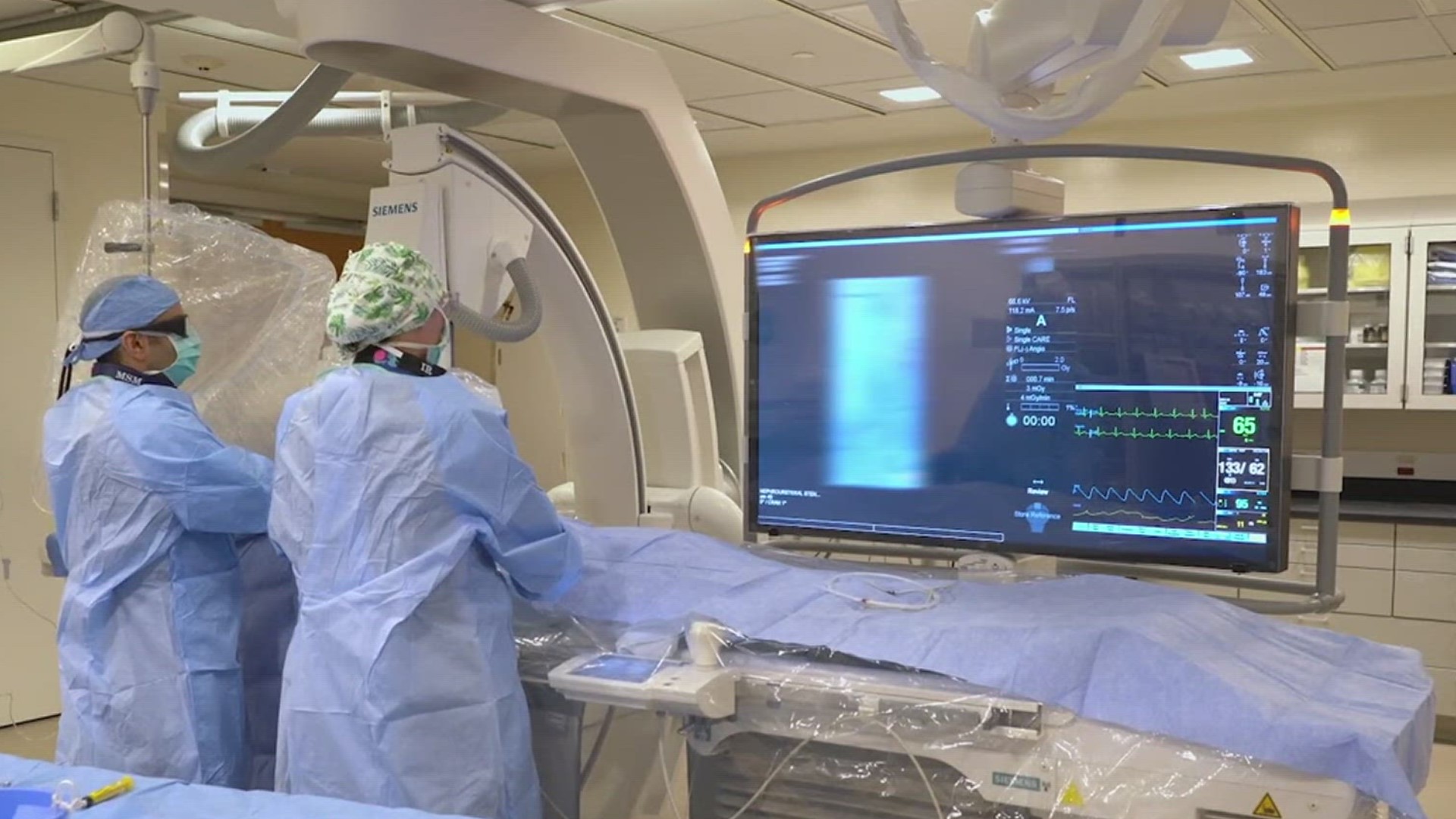YORK, Pa. — It's a common condition that many women might not know they have: uterine fibroids, which are non-cancerous growths in and on the uterus.
Doctors are using a minimally invasive treatment to address the symptoms fibroids can cause, while preserving a woman's ability to give birth in the future.
Intense pain and stomach weight gain. That's what led Tango Price to her doctor.
"I was like 'what is that? I have no clue.' I thought I was dying," she said.
Like Price, some women might not know they have uterine fibroids, but they can cause debilitating pain, heavy bleeding and pelvic pressure.
"I had like four, maybe four in me around, and the one big one, right here," she said.
Price worried a hysterectomy to surgically remove the uterus was her only treatment option. That is, until she learned of a minimally invasive procedure led by Dr. Mina Makary at the Ohio State University Wexner Medical Center that uses x-ray imaging to guide surgeons with just a tiny pinhole incision.
"We basically use small catheters and wires," Dr. Makary said. "We find the blood flow that goes to the fibroids and we plug them up. At the end of the day, the patient goes home with a band-aid."
Uterine fibroid embolization provides effective relief with fewer side effects.
"They have better outcomes, quicker recovery, less risk of complications and it's even more cost effective than open and traditional ways of treatment," Dr. Makary said.
It is one of the options offered at a multidisciplinary uterine fibroid clinic created to find personalized solutions for a very common issue, giving women choices beyond a hysterectomy.
"We need more options to allow them uterine preservation, allow them to avoid major surgery, which has many risks," Dr. Amber Bondurant said. "Sometimes it's the right thing to do, but it shouldn't be the only option that women have."
For Price, preserving her uterus was important to her, making uterine embolization the right choice.
"I just want to enjoy my life and my children, my husband, and I'm just thankful," she said.
Doctors say if you're dealing with uterine fibroids, you should ask questions about all of your treatment options, both surgical and non-invasive, so you can make an informed decision that best meets your needs.

